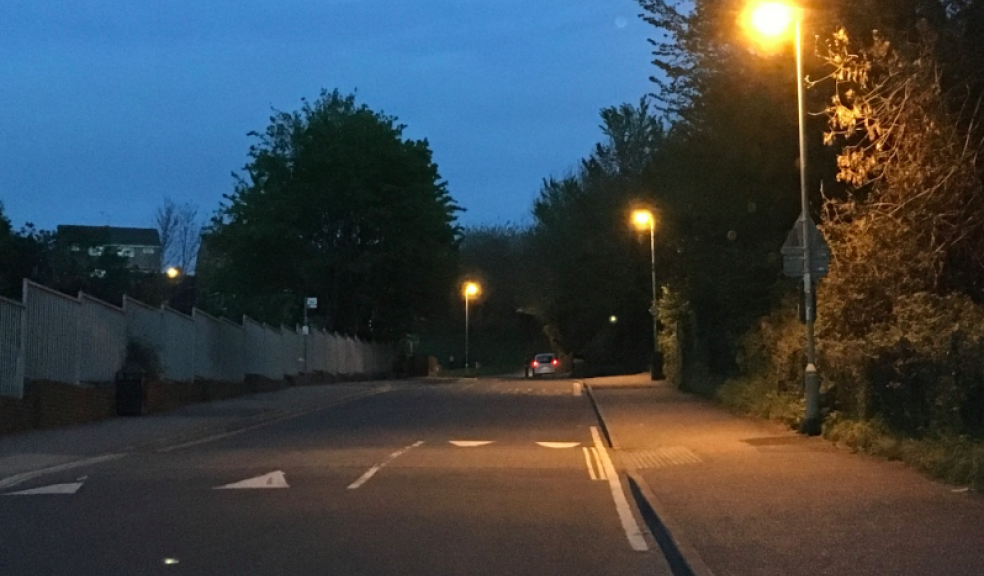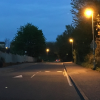
County Council updates streetlighting policy
Devon County Council’s Cabinet has agreed an updated streetlighting policy to continue to reduce energy consumption and carbon emissions.
The energy costs of operating more than 88,000 streetlights and other lighting assets across the county is around £3 million this financial year – and it accounts for a significant amount of the County Council's carbon emissions.
Over the past three years, the County Council has converted over 25,000 street lights to low energy LED technology and has replaced more than 5,400 streetlighting columns.
Energy reduction over the past five years has saved over £800,000 – although some of these savings have been used to cover energy price rises.
The continued change in technology to LED lighting will also improve the reliability of the streetlights, and "night scouting", to monitor whether lights are working, will be reduced. More reliance will be placed on public reporting of faulty lights, although regular safety inspections will continue.
In limited locations where it is safe and appropriate to do so, and in line with planning and advertising regulations, the County Council will also explore the possibility of advertising banners to be attached to lighting columns as a potential revenue stream.
The County Council will also look into the possibility of using streetlighting infrastructure for the installation of WiFi equipment and trials of electric vehicle charging locations.
Councillor Stuart Hughes, Devon County Council Cabinet Member for Highway Management, said: “The change to part-night lighting in residential areas and conversion of around a third of our street lights to LED lighting has significantly reduced energy consumption and carbon emissions, and we will continue to embrace new technology.
“Devon still has a few locations where street lighting has been maintained on private or unadopted roads and it is felt this should only continue by exception in future, but consultation would be held with local county councillors in any such areas so that we can look at each case on its own merits.
“Safety will always be our priority and by revising our street lighting service we can ensure it is a more effective and efficient service that is fit for the future.”
To reduce costs, councillors agreed not to retain responsibility for streetlights in private roads. The County Council will, instead, seek to transfer lights on private roads to those responsible for the private roads unless it is in the public interest for Devon to maintain them.
The authority supported the adoption of a pragmatic approach, and any decisions on whether it continues providing the service in a private road will be made in consultation with local county councillors.














